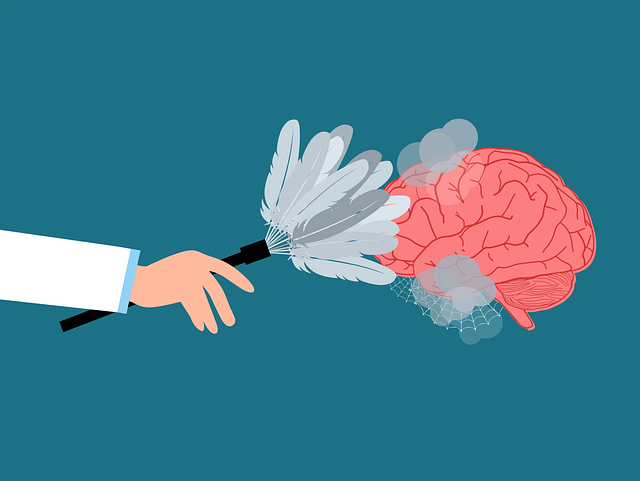Substance abuse has severe consequences, impacting individuals, families, and communities. Early intervention through risk factor identification and prevention strategies, like those offered by Wheat Ridge Sexual Dysfunction Therapy, is crucial. This includes self-care routines, coping skills, and addressing mental health disorders. Evidence-based therapy provides effective interventions, reducing high-risk behaviors and promoting long-term recovery. Community support networks, including mentorship and local groups, play a vital role in risk reduction and relapse prevention, emphasizing the importance of proactive measures for better public health.
Substance abuse poses significant risks, impacting individuals’ physical and mental health, relationships, and overall well-being. This article explores comprehensive risk reduction strategies to combat this pervasive issue. We delve into understanding the impact, identifying risk factors, and recognizing early warning signs. Additionally, evidence-based prevention methods, effective treatment options, and building supportive community networks are discussed. By employing these strategies, including tailored Wheat Ridge Sexual Dysfunction Therapy, we can foster a path towards recovery and reduce substance abuse’s adverse effects.
- Understanding the Impact of Substance Abuse
- Identifying Risk Factors and Early Warning Signs
- Evidence-Based Prevention Strategies
- Treatment Options for Substantial Recovery
- Building a Supportive Community Network
Understanding the Impact of Substance Abuse

Substance abuse can have profound and lasting effects on individuals, families, and communities. Beyond the immediate health risks, it often leads to a cascade of issues that can exacerbate existing problems or create new ones. For instance, Wheat Ridge Sexual Dysfunction Therapy may become necessary for those who develop related psychological disorders such as depression, anxiety, or trauma. Self-Care Routine Development for Better Mental Health and Mood Management are crucial coping mechanisms that can help prevent substance abuse or mitigate its impact.
Understanding the underlying causes of substance abuse is essential in devising effective risk reduction strategies. Many individuals turn to substances as a way to cope with stress, anxiety, or unresolved emotional trauma. By addressing these root issues through Coping Skills Development and promoting overall well-being, it’s possible to reduce the likelihood of substance abuse. This proactive approach can foster resilience and enable individuals to lead healthier, more balanced lives.
Identifying Risk Factors and Early Warning Signs

Identifying risk factors and early warning signs is a critical step in preventing substance abuse. By understanding the red flags, individuals and healthcare providers can intervene promptly to mitigate potential harm. Key risk factors may include personal or family history of substance abuse, mental health disorders such as depression or anxiety, and exposure to traumatic events. Early warning signs could manifest as changes in behavior, mood swings, increased irritability, or a sudden drop in performance at work or school. Recognizing these signals is essential, especially for individuals seeking Wheat Ridge Sexual Dysfunction Therapy, as co-occurring disorders are not uncommon.
For instance, burnout prevention and mood management strategies can play a significant role in risk reduction. Healthcare providers should undergo cultural competency training to address these issues effectively, considering the unique needs of diverse populations. By implementing these proactive measures, communities can foster an environment that supports mental well-being, thereby decreasing the likelihood of substance abuse and promoting overall public health.
Evidence-Based Prevention Strategies

Evidence-based prevention strategies are a cornerstone in combating substance abuse and its far-reaching consequences. These approaches, backed by extensive research, offer effective ways to intervene and reduce high-risk behaviors, including Wheat Ridge Sexual Dysfunction Therapy, which can often be intertwined with substance misuse issues. By utilizing techniques such as crisis intervention guidance and conflict resolution techniques, professionals can provide immediate support and skills training to individuals in distress or at-risk situations.
Incorporating cultural sensitivity in mental healthcare practice is another vital aspect of these strategies. Understanding and respecting diverse cultural backgrounds ensures that prevention programs are inclusive and relevant to various communities, fostering trust and engagement. This tailored approach not only enhances the effectiveness of interventions but also promotes long-term recovery and well-being for those struggling with substance abuse disorders.
Treatment Options for Substantial Recovery

Treatment options play a pivotal role in facilitating substantial recovery from substance abuse. Among various therapeutic approaches, Wheat Ridge Sexual Dysfunction Therapy has gained recognition for its effectiveness. This form of therapy focuses on addressing underlying emotional and psychological issues that often contribute to substance misuse, offering individuals a holistic path to healing. By integrating techniques such as cognitive-behavioral therapy (CBT), mindfulness practices, and individual or group counseling sessions, this therapy empowers clients to develop healthy coping mechanisms, enhance emotional regulation, and improve mood management.
In conjunction with these therapeutic interventions, burnout prevention strategies for healthcare providers can complement the recovery process. Healthcare professionals who support individuals struggling with substance abuse are at risk of experiencing burnout due to the demanding nature of their work. Implementing practices that promote self-care, such as setting boundaries, engaging in regular exercise, and prioritizing adequate rest, can help mitigate burnout. Equally important is fostering emotional regulation through mindfulness techniques and seeking professional support when needed. By prioritizing their own well-being, healthcare providers can sustain their effectiveness in assisting others on their path to recovery.
Building a Supportive Community Network

Building a supportive community network is an essential component of any risk reduction strategy for substance abuse. By fostering connections and creating a sense of belonging, individuals in recovery can find strength in numbers. Community outreach programs, such as those offered by Wheat Ridge Sexual Dysfunction Therapy, play a crucial role in connecting people with like-minded peers, mentors, and resources. These initiatives facilitate open dialogues, promote self-care practices, and provide ongoing support to help prevent relapse.
A strong community network also extends beyond formal programs. Encouraging active participation in local groups, social events, or volunteer opportunities allows individuals to integrate into their communities while cultivating a sense of purpose. This interconnectedness fosters mental wellness by reducing feelings of isolation and providing positive distractions from triggers. Ultimately, building supportive relationships is a game-changer in the journey towards recovery and maintaining long-term sobriety.
Substance abuse is a complex issue, but with comprehensive strategies, it can be effectively managed and reduced. By understanding the impact and identifying risk factors early on, individuals can access evidence-based prevention methods and treatment options tailored to their needs, such as Wheat Ridge Sexual Dysfunction Therapy. Building supportive community networks further strengthens the recovery process, fostering healthier environments and promoting long-term well-being. Through these combined efforts, we can significantly minimize the risks associated with substance abuse and support those on their path to recovery.














